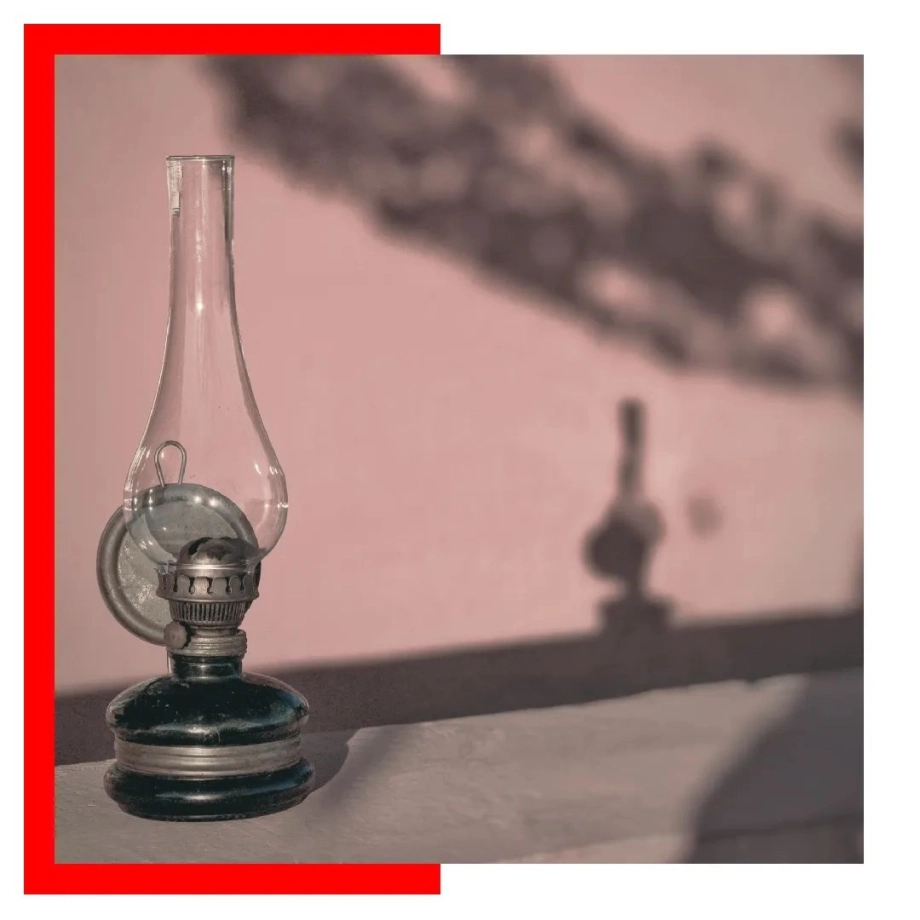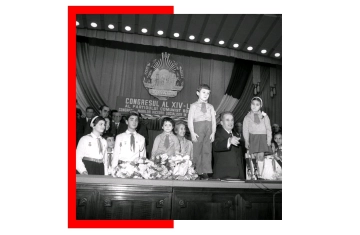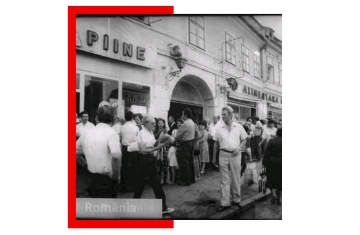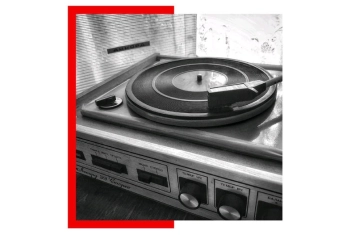The light has been taken away!

Life must have been extremely hectic in the ’80s, of maximum scarcity, especially in a house with three children, like ours. For my parents the day started standing in line for milk at 5 o’clock in the morning (my father) and with the run to the nursery and kindergarten with a child in her arms and the other by the hand, in crowded trolleybuses (my mother), with the inevitable conflict at work where she arrived late, to be completed then, at the end of the work, standing in some line where something precious, eggs for example, “was sold”, or with laundry to be washed in water heated on the stove and rinsed in cold jet as from a waterhole.
I have to admit that I didn’t really know much about this. I had only stood in line once, with my younger sister (for Chinese chocolate) and when we came back home I told my parents how people started to crush us to the counter when they had begun to jumble. It was then, our mother decided that whatever it was, the children should not stand in lines anymore. I was, anyway, a child quite absent from reality because reading had given me on the tray, a world to escape at hand. I always lost track of the few errands that I had to do, I came out serenely with the basket from the food store, I asked for sugar at the pharmacy... My parents nicknamed me the cricket and Paganel to give a forgivable form to my inadequacies to the present. However, I did not escape completely. The system also had its refinements for the little ones. Every morning my mother rediscovered with amazement that I had lost my tie ring or my headband (my curly hair rejected it systematically, day after the day, until the revolution), and when I came back from school she read in the correspondence notebook that once again, I forgot at home the “pioneer” (the costume of pioneer, for school “ceremonies”).
With a real obsession for the house tidiness and for our shirts to be impeccably starched and ironed, burdened by the household chores and endowed with an explosive personality, my mother made sure that in our house, every day was to be lived in a passionate register. Few things could make her, however, cross the border between everyday irritation and despair faster than taking the light away, especially in winter, when the days are so short. I know, I should say the interruption of the electricity, but nobody, neither a child nor an adult said differently than the light has been taken away – shortly, with the catastrophic, apocalyptic, incomprehensible touch that such a phenomenon involves. When I was little, however, that moment seemed phenomenal to me, every time. It was a moment of perplexity that plunged the house into absolute silence. As if you had suddenly woken up on another planet. But my mother, with the unfinished food or the unironed clothes or the barely soaked laundry, was scratching a match and we knew that it would not be long before she discovered us, too: “But why didn’t you finish your homework when the light was on, what did you expect, to do it at the candle light?” The candle was (almost) a figure of speech. In the ’80s, when these moments had become very common, any respectable house had a gas lamp. Ours had been Grandma’s, from the time before the electrification of the villages. Detached from its nail on the wall, it was very good for us now, in that time of darkness of the cities. Its beautifully arched and fragile cylinder broke at one moment and it was replaced by another, from the communist market, wide and devoid of any charm. I had one more reason to detest it. In its flickering light we all pretended that nothing had happened, that the things that mattered were the same laundry, homework, food, namely the ones that were invading our life in the bright light of the day or of the light bulb, equally.
A few times though, for reasons that escaped me (finished stock of kerosene gas? pure tiredness?), “the taking of light” had been received as such. I mean it really happened that everything stopped, mom didn’t work anymore, dad sat down – something really incredible. We were all sitting together in a room (Which one was it? The spaces became different – it was a smaller and softer room, a room full of a thick and good evening...), not even a candle was lit, mom and dad spoke softly, in a warm voice, sometimes one of us said something too, but mostly we were just silent. There were voices that matched the feather that Oana kept in her pajamas pocket, to tickle herself. To stay in silence next to someone, to just shut up, simply, warmly –for me this seems to this day the height of intimacy, an extraordinary gift, so hard to find, still. Only a “power failure” and you could have found the time to understand which things matter and which do not.
No, I don’t have communist nostalgia. I also remember well what the neighborhoods looked like when you came home in the evening, while the electricity was off: the dark blocks, the sidewalks where you could no longer guess the holes or the swamps leaked from the garbage bins, the silhouettes of people who you were always afraid of and whom you evaluated from a distance, to know whether to cross on the other sidewalk, the staircase of the apartment building to which you knew the number of steps, so as not to stumble...
But sometimes, when I see that I have adopted my mother’s old way of living, ready at any time to do something else, quickly, efficiently, I know that I understand her so well (even if too late), but I’m also trying to remember something important that I learned then: how be little again and how to be a cricket.
Dana Mocanu, Brasov



